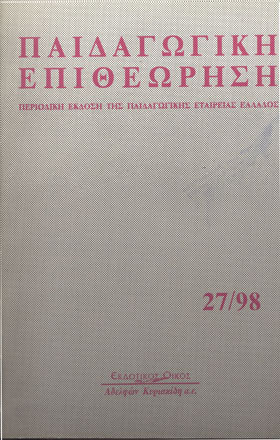Στάσεις μαθητών σχολικής ηλικίας απέναντι στον έπαινο, τις αμοιβές, τις τιμωρίες και την επίπληξη
Main Article Content
Περίληψη
The study investigated the attitudes of Greek primary school pupils to praise, rewards, punishments and reprimands. The PRPR attitude questionnaire was given to a sample of 1.037 pupils from the 3rd to the 6th year junior classes. Generally, the study indicates that primary aged pupils have definite ideas about the effectiveness of praise, rewards, punishments and reprimands in school. The great majority of pupils consider rewards and praise to be more suitable for academic than for social behavior and thought, on the whole, that the amount of praise and blame they received in school was about right, although the number of boys believing that they received too much punishment always exceeded that of girls across all the age groups. Also, they said that they valued the opinions of their teachers above of their peers in relation to both their work and their behavior. Being sent to Headmaster/Headmistress was consider the most effective punishment for poor work and bad behavior and praise from he teacher the most effective reward for good work\k and good behavior. Both for praising and as a punishment letter sent from school to parents was believed to be very potent. This underlines the importance of close collaboration between home and school. The paper concludes that pupil’s opinion about what incentives and sanctions are appropriate in different situations should be seriously taken into account by teachers in order to motivate their pupils and change undesired academic and social behaviors un the school context.
Article Details
Τεύχος
Ενότητα
Άρθρα
